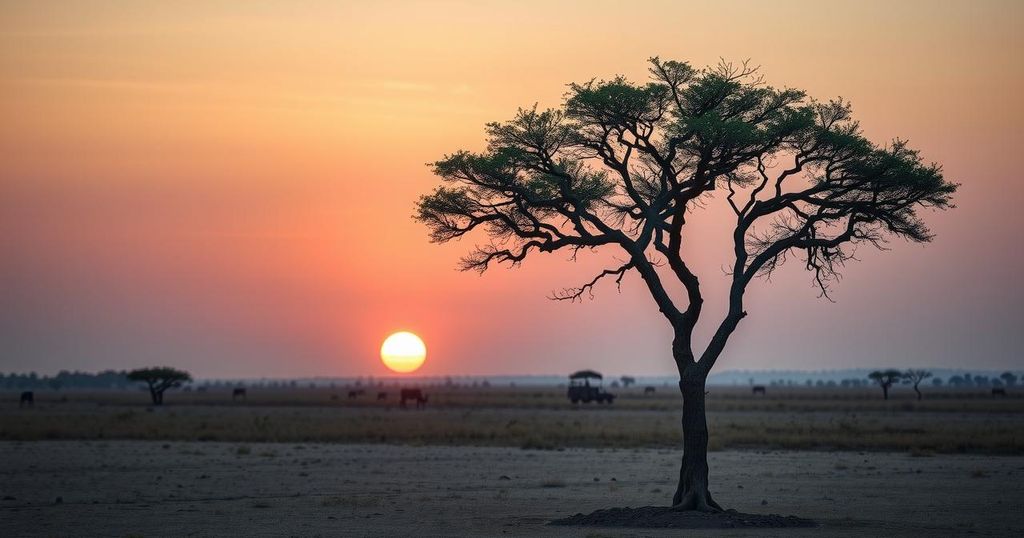Southern Africa is currently experiencing a severe drought, affecting 61 million people, with 20 million in crisis. Namibia has declared a state of emergency due to acute food insecurity, prompting the culling of wild animals to mitigate hunger. Climate change is identified as the key driver of this crisis, emphasizing the urgent need for global action to combat environmental degradation.
Southern Africa is enduring one of its worst droughts in over a century, affecting an estimated 61 million individuals, with more than 20 million considered to be in a state of crisis (IPC Phase 3). This severe drought has prompted countries such as Botswana, Namibia, Lesotho, Malawi, Zambia, and Zimbabwe to declare states of emergency, highlighting the unprecedented scale of the humanitarian challenge.
The drought’s impact is particularly acute in Namibia, where approximately 40% of the population faces severe food insecurity and is classified in crisis phase. In response, Namibia has initiated a cull of nearly 700 wild animals, including elephants, hippos, and elands, to alleviate hunger among its citizens. Alarmingly, as of 2024, the country has depleted 84% of its food reserves, underscoring the dire nature of the situation.
This current crisis is not an isolated event; Namibia has repeatedly declared states of emergency due to drought, occurring in 2013-2014, 2015-2016, and 2018-2019. These recurring crises reflect ongoing climatic challenges that have persisted over the past decade, indicating a troubling trend of increasing frequency and severity.
The overarching cause of such extreme weather events is climate change, which has similarly affected other regions, including California and Spain. The global climate crisis is evident, with a notable increase in natural disasters; major climate-related incidents have risen by 83% from 1980 to 2019, leading to significant human and economic tolls.
Without decisive action to combat climate change, disasters like the current drought in Southern Africa will continue to escalate in frequency and intensity. These events are interconnected; thus, it is imperative to recognize that responses to climate change must be a global priority, advocating for the preservation of impacted regions, such as Namibia, known for its rich biodiversity and natural beauty.
Those not directly experiencing environmental crises may question the necessity of addressing climate change. The truth is, the ongoing crisis has far-reaching implications that ultimately impact everyone, regardless of location. Individual actions may seem insignificant, yet collective efforts have the potential to drive substantial change.
It is imperative to address climate change urgently, as the longer society delays action, the more dire the consequences will become. Historical delays in addressing this issue, extending nearly 170 years, suggest a need for concerted efforts to address the climate crisis promptly, preventing irreversible damage to the planet and its ecosystems.
Southern Africa is suffering from an unprecedented drought affecting millions of individuals throughout the region. Namibia faces particularly severe consequences, with substantial food insecurity and emergency measures in place. The ongoing climate crisis exacerbates these conditions, necessitating immediate and combined action to counter climate change effectively. While individual actions may seem small, collective efforts are crucial in addressing this global challenge and ensuring the health of the planet for future generations.
Original Source: www.theteenmagazine.com






